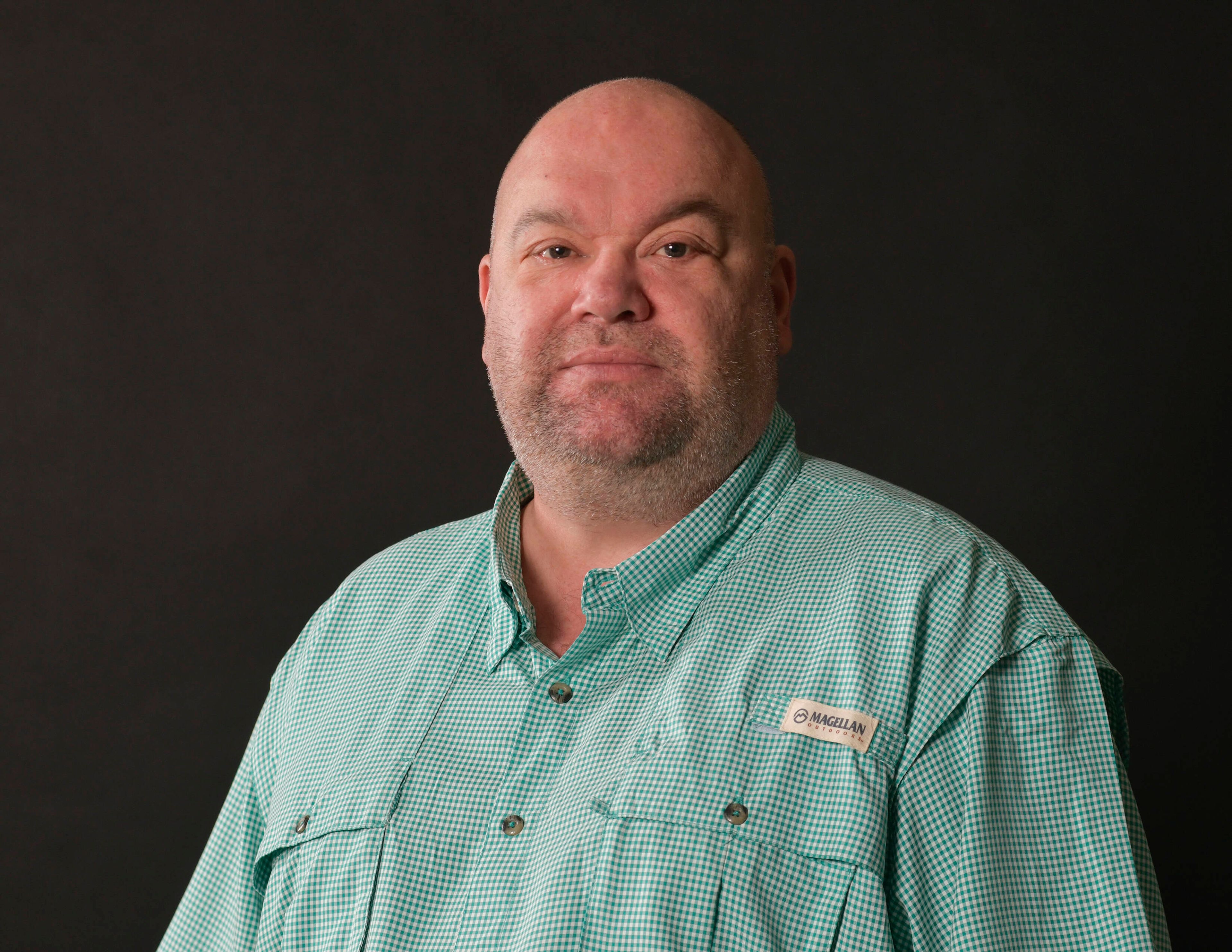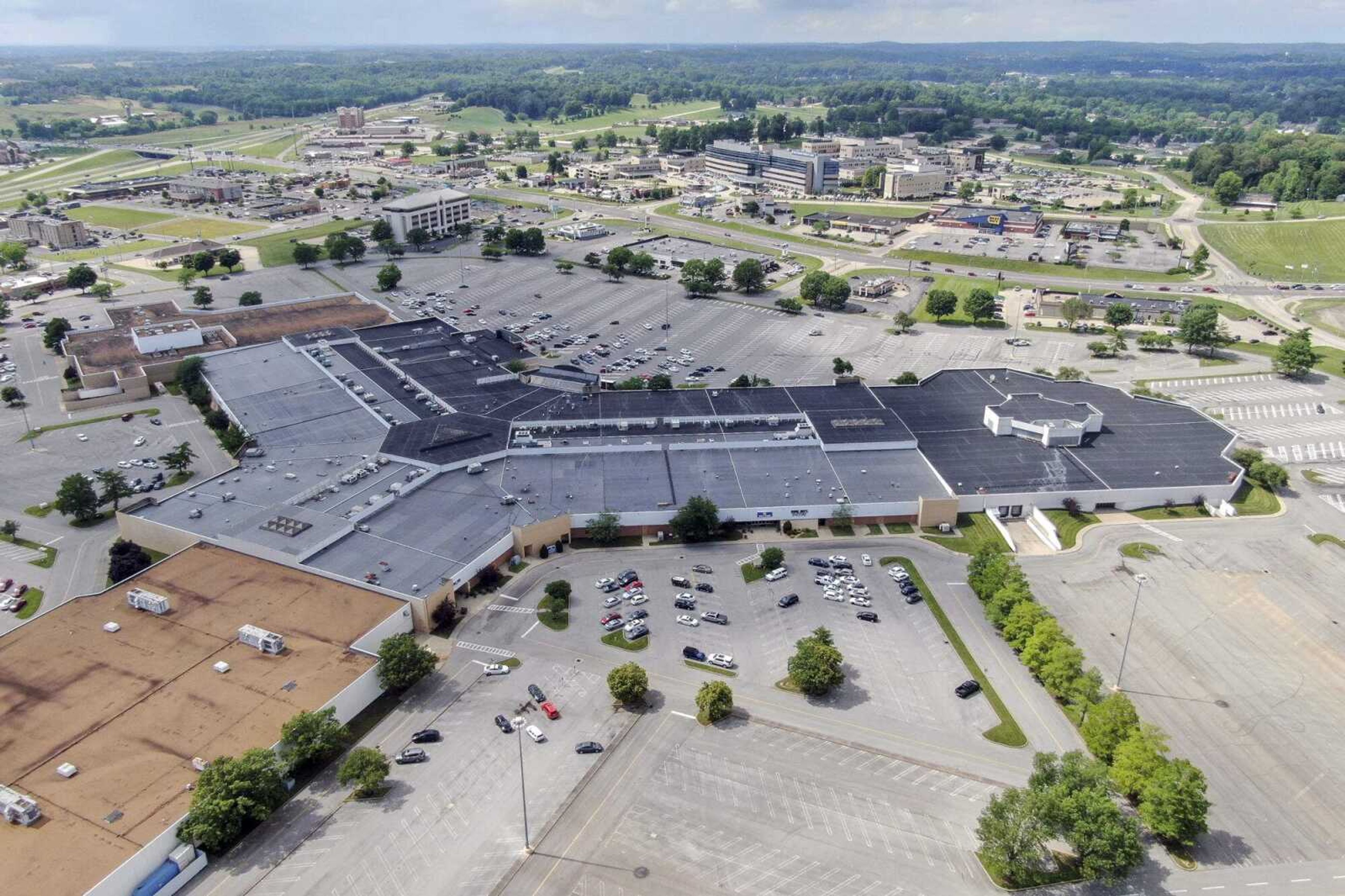Cape Girardeau City Council members voice strong support for two mall redevelopment incentives
Cape Girardeau City Council members signaled strong support at their meeting Monday, Sept. 18, for two components of a plan to redevelop West Park Mall. The moves came after several months of preliminary actions and behind-the-scenes negotiations between municipal staff and owners of the mall, a group formed as River City Centre LLC...
Cape Girardeau City Council members signaled strong support at their meeting Monday, Sept. 18, for two components of a plan to redevelop West Park Mall.
The moves came after several months of preliminary actions and behind-the-scenes negotiations between municipal staff and owners of the mall, a group formed as River City Centre LLC.
Owners of River City Centre LLC have proposed a $107 million redevelopment plan for the mall, which they bought more than two years ago. River City Centre is a group of local real estate developers and strategic partners. The group is owned and managed by Lucas Haley, Michael Williams and Ben Ressel, with additional investment from Matthew Mills, Natalie Riley and Steve Holden, through trusts and affiliates.
The group has asked for an incentives package with five components: tax increment financing, which splits increasing sales and property tax revenue evenly between the developer and the local taxing units; a Community Improvement District, which imposes a sales tax and/or annual assessment on properties contained within the project's boundaries; a Transportation Development District, which imposes a sales tax within the project's boundaries; sales tax waiver on construction materials; and waiver of municipal fees related to the project.
Together, the incentives could total up to about $49 million (in present day dollars), though John Hansen, managing director of Integra Realty Resources Corporate and Public Finance Group who is serving as a consultant on the project, told council members Monday the incentives will not directly cost the local taxing units. He said the TIF component will only benefit the developers if tax revenues rise, and then, the local taxing units would receive 50% of any revenue increases. The CID and TDD are taxes/assessments paid by consumers and mall owners/tenants, and Hansen said without the redevelopment there would be no sales tax revenue on construction materials, making the waiver moot.
Council member Nathan Thomas spoke to the issue as well.
"We need to dispel the myth that we are taking money out of taxpayers' pockets. We are stopping the bleeding by this mechanism," he said, regarding TIF. "Everything above and beyond (the baseline revenue level), we are taking half of. We are increasing our tax base, not taking away from it."
Council members took individual votes on the measures, with Mayor Stacy Kinder and council members Shannon Truxel, Mark Bliss, Dan Presson and Thomas voting to approve the majority of the TIF proposal and the first reading of the CID measure. Council member Tameka Randle voted against each measure. Alderman Robbie Guard was absent from the meeting. Kinder read a statement from Guard indicating he would not participate in the meeting because of a financial conflict as he is a shareholder and officer of the bank the developers are using for the project. Kinder further noted Guard has not participated in negotiations with the developers.
While discussing the measures, Presson, Bliss, Thomas and Truxel explained various reasons for supporting the project.
Presson said a redeveloped mall would be an economic engine for the region and serve to help recruit new business talent to the area.
"We have to do something to keep people here, keep them engaged," he said.
He contended the project has generated excitement in the community.
"There is a crackle of excitement throughout the community that has been palpable. People are excited to see something new. They want to see development in this community. They want to see new things," he said.
Bliss agreed, pointing to the mall's dwindling sales tax revenue.
"I think we have to do something. Status quo is not the answer," he said. "In the last two years, sales tax revenue has declined 43%. That is less tax revenue coming into local government, less funding for improvements that need to be made. ... The decline in sales tax revenue tells the whole story."
Truxel noted the city's financial foundation is solid and gives officials the opportunity to support the project.
"Without the use tax, we would be having a different conversation right now. We would be desperate. We are not desperate to make this deal," she said. "I believe that our staff has thoroughly vetted this deal to make sure our interests are protected and that the risk is minimal. ... We have developers that are willing to develop a piece of property that no one offered to redevelop. This is not a situation where we are desperate for redevelopment."
Thomas contended the city got "lucky" when local developers purchased the mall, suggesting they have a sentimental attachment to the mall that others would not have. He said the region could benefit from a rejuvenated mall.
"The future of malls is not dying. It's transforming, and we are ideally located in Southeast Missouri," he said. "We are the hub that people come to when they don't want to drive to St. Louis or Memphis (Tennessee)."
During the public comment portion of the meeting, Mary Ann Allen, who owns several stores in the mall, said local ownership of the mall is a benefit.
"The No. 1 rule, you have to care about your property to make it successful, and that is what they have successfully done," she said. "We have hometown people who took the time and are making the effort, finding their way through this, and I think it will be one of the most amazing successful operations that Cape Girardeau will probably ever have for that reason."
During Monday's meeting, there were several comments regarding bonds the developers plan to sell to finance the project and whether the city could be responsible for paying for those bonds if revenue from the redevelopment comes up short of projections. Such a scenario occurred in another Missouri locale. Hansen assured council members that would not be the case.
"The only party that is holding risk is the bond holders. When we are ready to do the bond issue, they will make a sophisticated and informed decision," he explained.
Bliss reiterated the point.
"The city is not going to be responsible for any payment of those bonds. The city is not on the hook for any of that," he said. "Any suggestion that this compares to the situation in Independence, that is not accurate. We are not on the hook related to anything for bond payments."
Tax increment financing
At Monday's meeting, council members approved a tax increment financing (TIF) plan for most of the mall property. They approved an ordinance allowing TIF reimbursements for improvements to about 59 acres of the 65-acre site -- areas 1 and 2 of the redevelopment project, which comprise the existing mall (excepting the existing JC Penney footprint) and some of the surrounding parking areas. The roughly 4 acres contained in four "out-parcel" areas that have not been developed will not be eligible for TIF reimbursements.
The TIF incentive for the project accounts for up to about $18 million in local property and sales tax incentives over the course of 23 years. TIF allows developers to retain 50% of increased property and sales tax revenue up to a capped amount, with the local taxing units (City of Cape Girardeau, Cape Girardeau County and Cape Girardeau Public Schools) receiving the other 50%, plus all of the predetermined baseline tax revenue. Once the TIF period ends or the maximum approved amount is reached, the tax units receive all of the tax revenue. Cape Girardeau TIF commissioners voted to recommend the TIF portion of the project to the City Council in June.
At Monday's meeting, Hansen said the TIF proposal ensures the local taxing units will maintain existing revenue going forward. He told council members property tax revenue from the mall has dropped nearly 50% since 2018 and sales tax revenue has declined significantly in recent years, falling 18% in 2022 alone.
"The partnership created is a win-win for the project and the city. As the project does better, the city does better," he told council members.
Community Improvement District
Council members read and approved for the first time an ordinance to create a CID for the property.
The CID allows developers to impose a sales tax on purchases made within the boundaries of the property to fund redevelopment efforts. If approved, the mall's CID will impose a sales tax at the rate of 1% and an annual special assessment in an amount of $2 per square foot of gross leasable area of each building within the district.
Those funds (up to $18.07 million) will finance and reimburse the eligible CID project costs for public improvements made, and services provided in connection with the development, operation and maintenance of the proposed property, including ongoing administrative costs of the district, property acquisition, site preparation and improvements.
The term of the proposed district shall be a maximum of 27 years from the date the City Council approves an ordinance authorizing the formation of the district.
A public hearing on the CID portion of the project was held in August.
The CID portion of the project will again come before council members at their next meeting.
At that meeting, council members are set to consider the comprehensive development agreement for the project. That agreement will address the potential waiver of sales taxes on construction materials and municipal fee waivers.
Connect with the Southeast Missourian Newsroom:
For corrections to this story or other insights for the editor, click here. To submit a letter to the editor, click here. To learn about the Southeast Missourian’s AI Policy, click here.










